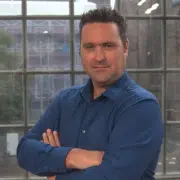Rising gas prices, low gas stock levels and sudden concerns about the supply… and Winter Is Coming… What more awaits us? And what can we do about it? This week’s HCSS Digest rounds up all the questions you have on the gas crisis.
All About That Gas
Since the decision to phase out the Groningen gas fields because of earthquake risks, the Netherlands has become much more dependent on foreign imports. Consequently, a secure supply of gas is no longer a given, especially during tight gas markets. In this new HCSS study, energy experts Jilles van den Beukel and Lucia van Geuns give a number of recommendations on how the government could respond to this.
With gas prices soaring, the conclusions and recommendations of the paper received a lot of attention in the media, and authors Van den Beukel and Van Geuns were frequently requested for their insights in newspapers, radio and TV programs.
- The extremely high energy prices due to the scarcity of gas are more than an incident for the Netherlands, NOS news reported about the new HCSS study. “There is a ‘big gap’ between the announced closure of the Groningen field and the realization of large amounts of sustainable energy in the future. In the intervening period, the Netherlands is extremely vulnerable to extreme gas prices and even energy shortages,” Jilles van den Beukel explained.
- “Until recently, the Netherlands was in a comfortable position: we were self-sufficient and could always fall back on the large Groningen gas field,” HCSS energy expert Lucia van Geuns commented in newspaper Het Parool. “Now that we have stopped “Groningen”, we no longer have that luxury.” The article was also published in Algemeen Dagblad, Brabants Dagblad, De Gelderlander and Tubantia.
- On Tuesday, the gas price was 8 times higher than a year ago. Many consumers will be looking at significantly higher energy bills. The government must make harder choices to prevent us from being left out in the cold this winter, Jilles van den van den Beukel said on Radio 1’s Spraakmakers Op 1: “The problem is that Groningen gas tap cannot actually be closed completely at the moment.”
- Natural gas is expensive and quite scarce, a shortage of gas could actually be a posibility. There is little the government can do at the moment apart from exercise damage control. But in the longer term, the government can do something to make the supply of gas more secure, says Jilles van den Beukel in newspaper Trouw.
- The extremely high gas prices are partly due to the scarcity of gas. The current scarcity of gas could leave the Netherlands out in the cold. We can only prevent this if difficult choices are made, Lucia van Geuns commented on NOS Met Het Oog Op Morgen.
- Gas prices are now soaring that HCSS energy expert Jilles van den Beukel calls it ‘frightening’ at RTL Nieuws. “We have not carefully considered the consequences,” he says about the rapid phasing out of production in Groningen.
- No proper risk analysis has been made of the phasing out of “Groningen”, Jilles van den Beukel said in Nieuwsuur: “We have calculated to the decimal point how the earthquakes will decrease if we pump up less, but we haven’t looked closely at all at what this would mean for the steady supply of gas.”
There is an increasing gap between activists who want to complete the energy transition the day after tomorrow, and policymakers who have to consider the technical possibilities and the economic and social consequences, writes Rob de Wijk in his column for Energiepodium. The energy transition is a process that takes decades; investment in fossil fuelss will be needed for decades to come: “Price increases also lead to economic and social problems that will in fact slow down the energy transition.”
China
“China is asserting itself more and more and testing the reaction of the Americans,” Rob de Wijk commented to NOS New on the incursion of Chinese fighter jets over Taiwan airspace. But the big question is: how far are the two superpowers, and with it the European countries, prepared to let the conflict escalate?
How strong is China? Should we fear China’s power – and how much longer can we rely on the United States for our security? On Buitenhof television, HCSS Director of Political Affairs Han ten Broeke discuss China as a world power, the AUKUS military pact, and how Europe should respond to these developments.
Can China still become number 1? Xi is behaving more and more like a potentate, Rob de Wijk writes in his column for Trouw, which severely inhibits the entrepreneurial spirit and innovative capacity that have made China great. Additionally, foreign investors are getting nervous. The incursions into Taiwanese airspace are a great way for the regime to divert attention from domestic problems.
Drones
The revelation that data collected by drones used by the Dutch police could possible leak to China has led to questions in Parliament; on Sept. 30, Member of Parliament Barbara Kathmann submitted written questions to the Minister of Justice and Security Grapperhaus and the Minister of Infrastructure and Water Management Visser. HCSS expert Patrick Bolder was asked by various media for comments last week, including EenVandaag, Trouw, De Groene Amsterdammer, NOS and the Radio 1 Journaal.
Robots that can decide to use violence on their own? Is that still something from the future, or is Terminator becoming reality? And just how realistic is a ban on “killer robots”? Rob de Wijk discussed the feasibility of a ban on “killer robots” on NPO Radio 1’s Dit Is De Dag.
To Sanction Or Not To Sanction
After the annexation of Crimea in 2014, Russia was hit by sanctions from the West. But these sanctions actually accelerated the creation of the Russian agri-food sector, Rob de Wijk writes in his column for Nieuwe Oogst – the paradoxical conclusion that sometimes sanctions hit the countries that impose them harder than the recipient.



